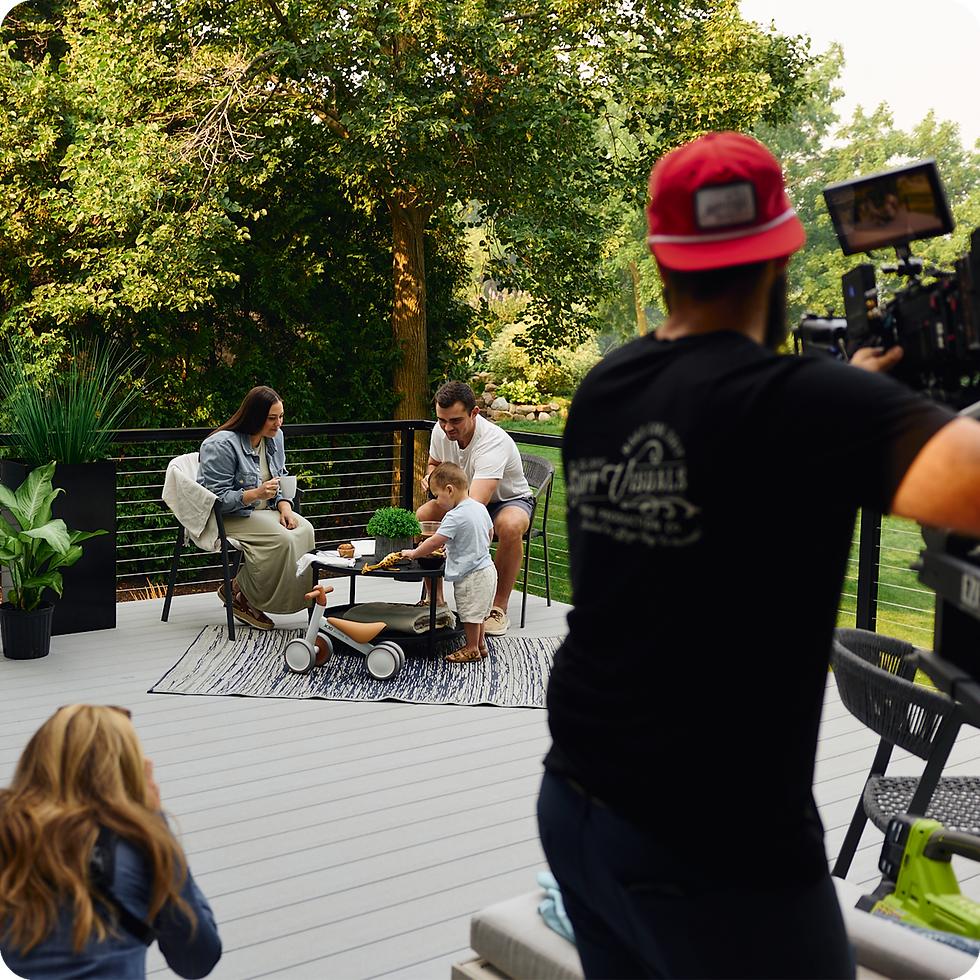Videography vs. Cinematography: What's the Difference?
- Dj Kast
- May 10, 2023
- 3 min read

Videography and cinematography are two terms that are often used interchangeably, but there is actually a distinction between the two. Videography is the art and practice of capturing moving images using a video camera. Cinematography is the art and science of creating moving images with a camera and lighting, with the goal of telling a story or evoking an emotional response in the viewer.
So, what are the key differences between videography and cinematography?
Videography
Focus on capturing events
Use of handheld or small, inexpensive cameras
Less emphasis on lighting and composition
Small crew or no crew at all (one person band)
Cinematography
Focus on storytelling
Use of professional cameras
Greater emphasis on lighting and composition
Usually at least a 3 person crew (Cinematographer, lighting tech, audio tech or producer)
In general, videographers are more concerned with capturing events and moments in time, while cinematographers are more concerned with creating a visually stunning and emotionally resonant experience for the viewer.

Cinematographer vs. Videographer showdown ;)
Crew
Videographers: Typically work with a small crew, or even alone. This more "run and gun" style leads to quantity over quality filming.
Cinematographers: Often work with a larger crew, which may include a director, a producer, a gaffer (lighting), a key grip (grip), a dolly grip, a steadicam operator, a sound mixer, a boom operator, a script supervisor, and even a production assistant. This style can be slow but that time and talent manifest itself in attention to detail and quality.
Equipment
Videographers: Typically use handheld or small cameras, such as DSLRs or camcorders. They may also use gimbals or a drones. Depending on the camera there may be limitations for things like resolution, frame rates, and how it handles difficult lighting environments.
Cinematographers: Often use large, professional cameras, such as REDs or Arri Alexas. They also use a variety of specialized equipment, such as lighting, lenses, and grip gear. These cameras typically shoot higher frame rates, resolutions and result in much better overall final look.
Budget
Videography: Typically has a lower budget than cinematography. This is because videographers typically use less specialized equipment and a smaller crew. It's also likely that you're able to get more shots in a day.
Cinematography: Has a higher budget than videography. This is because cinematographers use more specialized equipment and a larger crew. Expect each shot to be lit, composed nicely and for all the small details to be taken care of.

Film Production Showdown Complete, right? Total K.O?
Not quite. It's important to note that these are just general guidelines. There is some overlap between the two disciplines, and the specific needs of each project will vary.
Of course, there is some overlap between the two disciplines. For example, some videographers will use lighting and other tools to create more visually appealing videos. And, some cinematographers will scale down the crew size to fit a production to get within a budget. Ultimately, the difference between videography and cinematography comes down to the intent of the creator. Videographer are focused on capturing events, while cinematographers are focused on storytelling.
Which is Right for You? The answer to this question depends on your specific needs and budget. If you're looking to create videos for events, such as weddings, parties, or conferences, then videography is likely the right choice for you. Videographers have the skills and experience to capture these events in a professional and engaging way. They can often work in the documentary style to make sure that your event is covered top to bottom. If you're looking to create anything from tv commercials, corporate videos or brand films that tell a story, then cinematography is the right choice for you. Cinematographers have the skills and experience to create visually stunning and emotionally resonant films that will leave a lasting impression on your viewers.
To learn more about the work we do and how we may be able to work together click the button below.


